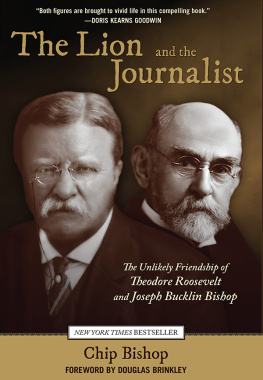Daniel Utrecht - The Lion of Munster: The Bishop Who Roared Against the Nazis
Here you can read online Daniel Utrecht - The Lion of Munster: The Bishop Who Roared Against the Nazis full text of the book (entire story) in english for free. Download pdf and epub, get meaning, cover and reviews about this ebook. year: 2016, publisher: TAN Books, genre: Religion. Description of the work, (preface) as well as reviews are available. Best literature library LitArk.com created for fans of good reading and offers a wide selection of genres:
Romance novel
Science fiction
Adventure
Detective
Science
History
Home and family
Prose
Art
Politics
Computer
Non-fiction
Religion
Business
Children
Humor
Choose a favorite category and find really read worthwhile books. Enjoy immersion in the world of imagination, feel the emotions of the characters or learn something new for yourself, make an fascinating discovery.

- Book:The Lion of Munster: The Bishop Who Roared Against the Nazis
- Author:
- Publisher:TAN Books
- Genre:
- Year:2016
- Rating:3 / 5
- Favourites:Add to favourites
- Your mark:
- 60
- 1
- 2
- 3
- 4
- 5
The Lion of Munster: The Bishop Who Roared Against the Nazis: summary, description and annotation
We offer to read an annotation, description, summary or preface (depends on what the author of the book "The Lion of Munster: The Bishop Who Roared Against the Nazis" wrote himself). If you haven't found the necessary information about the book — write in the comments, we will try to find it.
The Lion of Munster: The Bishop Who Roared Against the Nazis — read online for free the complete book (whole text) full work
Below is the text of the book, divided by pages. System saving the place of the last page read, allows you to conveniently read the book "The Lion of Munster: The Bishop Who Roared Against the Nazis" online for free, without having to search again every time where you left off. Put a bookmark, and you can go to the page where you finished reading at any time.
Font size:
Interval:
Bookmark:
BY DANIEL UTRECHT
OF THE ORATORY

TAN Books
Charlotte, North Carolina
Copyright Daniel Utrecht 2016
All rights reserved. With the exception of short excerpts used in articles and critical reviews, no part of this work may be reproduced, transmitted, or stored in any form whatsoever, printed or electronic, without the prior written permission of the publisher.
This work would not have been possible without the numerous lengthy extracts taken from Lffler, Peter (ed.). Bischof Clemens August Graf von Galen: Akten, Briefe und Predigten 19331946. Two volumes. 2nd ed. Paderborn: Ferdinand Schningh, 1996. Kommission fr Zeitgeschichte. Used by permission.
Cover design by David Ferris
ISBN: 978-1-61890-764-6
e-ISBN: 978-1-61890-766-0
Cataloging-in-Publication data on file with the Library of Congress.
Published in the United States by
TAN Books
P. O. Box 410487
Charlotte, NC 28241
www.TANBooks.com
In memory of my parents

March 16, 1946: a cold, late-winter day in Mnster. As Bishop Clemens August Count von Galens horse-drawn coach progressed through the old inner city, he told his secretary that he felt sorry for the crowds of people lining the streets to greet him: The poor people are freezing to death this afternoon. Always a keen historian of his diocese, he told his secretary about the day when his predecessor, Bishop Johann Bernhard Brinkmann, had triumphantly returned to Mnster sixty-two years ago after six years of exile in Hollandit was February, but it was so warm that many of the people who had come from out of town spent the following night sleeping in the open on the steps of the buildings.
This was another triumphant homecoming. Bishop von Galen had returned, not from exile but from Rome, and was wearing the red hat and robes of a cardinal of the Holy Roman Church. It was less than a year since Germanys defeat in the Second World War, and now Mnsters own beloved bishop had been named by Pope Pius XII to the College of Cardinals. Some fifty thousand people had crowded into the city to rejoice.
There had not been much reason for rejoicing in Mnster, or in the rest of Germany, for some time. Adolf Hitlers Thousand-Year Reich had done untold damage during its twelve years of power. Germany was a pariah among nations. The horrors of the concentration camps and death camps had been discovered after the war, and they were infinitely worse than anyone could have imagined. Now the entire country was under foreign occupation, and all Germans were blamed for the crimes of their former leaders, even if they themselves had suffered under those leaders.
The people were poor. Many still did not know whether their husbands, sons, and fathers were alive or dead. Ten months after the war, hundreds of thousands of Germans still languished in prisoner-of-war camps, unable to contact their families.
Mnster itself was still a city of ruins. Nearly 90 percent of the buildings in the inner city had been damaged by multiple Allied bombing raids. Most were unusable; many were totally destroyed. Very few people still lived in the inner city. By this time, nothing had been rebuilt. The rubble had at least been moved to the sides of the streets and piled up, and this provided elevated places where people could stand to see the festivities. Others climbed onto what remained of the walls of bombed-out buildings. The cathedral, with its roof and towers missing, was unusable for the reception of the new cardinal, but it would not have been big enough anyway. All the festivities were to be in the open air.
Despite everything, March 16, 1946, was a day of rejoicing in Mnster. Mnster was a staunchly, stubbornly Catholic city and one of the largest dioceses in Germany. The diocese had been founded by St. Ludger in 805, nearly eleven and a half centuries earlier. But it had always been a simple diocese, never an archdiocese, and never in all that time had there been a cardinal occupying its episcopal chair. Now Clemens August von Galen was returning to the city, his city, still its bishop but also a cardinal.
From the tower of the church of St. Lambert came the sound of a fanfare. Trumpeters from the city orchestra had a position there and began to play when the cardinals coach came near. The coach had begun eight miles west of the city in the village of Telgte, where Cardinal von Galen had spent the morning at the shrine of the Sorrowful Virgin. He had a profound, childlike devotion to the Blessed Virgin Mary and had frequently visited that shrine during his twelve years as bishop, often going there on solitary pilgrimages on foot in the early mornings.
When the coach arrived at the Principal Market, Clemens August stood, blessing the crowd. He was an imposing figure in his scarlet robes, standing about six and a half feet tall. The people of his diocese had always held him in awe, partly because of the respect they would hold for any bishop, partly because of the respect they would hold for a man of noble blood, and partly because of his imposing bearing: He looked the part of a nobleman and a prince of the Church. But they also had a warm, loving affection for him. He was sure of his episcopal dignity and was physically prepossessing, but they knew his kindliness, his simplicity, his easy way with children, and his courage.
Slowly he came down from the coach. Two altar boys took hold of the train of the long red cape, the cappa magna, which came down from an ermine hood covering his shoulders. He ascended the steps to a balcony covered with evergreen branches, and the crowd cheered mightily. Ascending the balcony, the mayor came to a microphone and began to read a citation from the city council granting Cardinal von Galen the title of honored citizen of Mnster: Your Eminence: Faithful to your motto Nec laudibus Nec timore, you have fought for twelve years against the violations of justice and of conscience, making use of the spoken and written word, at the risk of your freedom and your life, to the wondering agreement of all right-thinking people throughout the world... You have consoled and comforted millions of Germans by your manly words.
Everyone knew exactly what the mayor was talking about. From the beginning of his time as bishop, shortly after Hitler took power, Clemens August von Galen had attacked the Nazi racial theories. In the middle of 1941, when Germanys war successes were at their height, he openly reprimanded the Gestapo for confiscating the houses of religious orders. He had denounced the secret practice of deliberately putting sick and disabled people to death and, it seemed, had an influence in stopping it.
The cardinal spoke a few words of thanks. It was clear that he was deeply moved. He spoke only briefly, as the program of the day had planned for his address to come later.
After a procession to the cathedral, Cardinal von Galen took a seat on a throne that had been prepared before the ruined west portal. Across the large square packed with people, he had a clear view of what was left of his episcopal palace. He had been in the palace when it suffered several direct hits from American bombs in October 1943. When his secretary had come rushing back from the bomb shelter, he had seen the bishop standing high up in the ruins in the open air.
After several more speeches praising the cardinals courage during the Nazi regime, he came to the microphone. Again and again, he was interrupted by shouts of applause as he thanked Pope Pius for the honor he had given him and the people of his diocese for standing behind him during those years:
Font size:
Interval:
Bookmark:
Similar books «The Lion of Munster: The Bishop Who Roared Against the Nazis»
Look at similar books to The Lion of Munster: The Bishop Who Roared Against the Nazis. We have selected literature similar in name and meaning in the hope of providing readers with more options to find new, interesting, not yet read works.
Discussion, reviews of the book The Lion of Munster: The Bishop Who Roared Against the Nazis and just readers' own opinions. Leave your comments, write what you think about the work, its meaning or the main characters. Specify what exactly you liked and what you didn't like, and why you think so.








